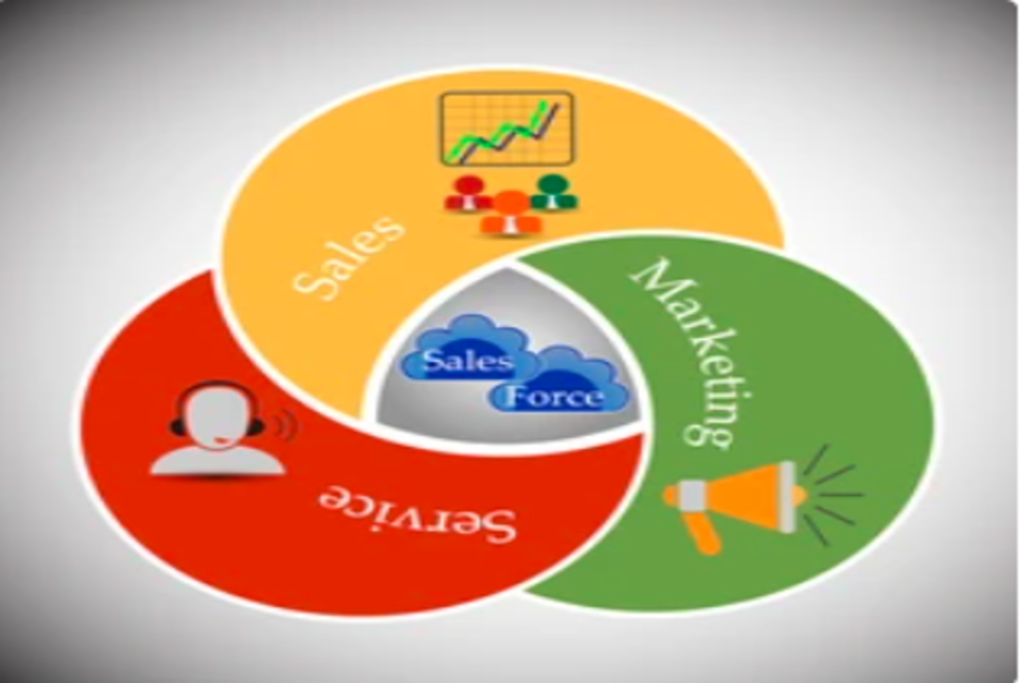Revolutionize with Salesforce Revenue Cloud for Business Triumph
In the dynamic world of modern business, effective revenue management is paramount, prompting companies to seek streamlined solutions. Salesforce Revenue Cloud stands out as a transformative platform, seamlessly integrating with Salesforce to unify revenue management across the customer lifecycle. Functioning comprehensively, it empowers organizations to optimize sales, automate billing, and enhance financial decision-making by bridging gaps between sales and finance. This evolution in Salesforce reflects a commitment to holistic solutions, transitioning from CRM to encompass the entire revenue lifecycle. In the upcoming sections, we’ll explore Salesforce Revenue Cloud’s key features and capabilities, addressing challenges in revenue management for businesses of all sizes.
Key Features and Capabilities of Salesforce Revenue Cloud
Salesforce Revenue Cloud stands out for its powerful features and capabilities, offering a comprehensive suite that addresses various facets of revenue management. Let’s delve into the key features that make it a go-to solution for businesses seeking to optimize their sales and finance operations.
- Streamlining Sales and Finance Operations: Salesforce Revenue Cloud seamlessly integrates with Salesforce CRM, offering a unified platform that dismantles silos between sales and finance teams. Automation lies at the core, accelerating deal closures and revenue recognition by streamlining manual workflows from quote to cash. Additionally, collaborative forecasting enhances real-time visibility into sales pipelines, fostering cohesive efforts between sales and finance for data-driven decision-making and meeting revenue targets.
- Automating Revenue Recognition: Salesforce Revenue Cloud boasts a cutting-edge Recognition Engine automating intricate revenue processes, ensuring precision in compliance with industry standards. Accommodating diverse revenue models, from subscription-based to one-time transactions, the platform offers flexibility for businesses with varied offerings. Real-time visibility through analytics empowers informed decision-making, optimizing strategies in response to dynamic market conditions.
- Enhancing Subscription and Billing Management: Salesforce Revenue Cloud excels in automating subscription lifecycles, ensuring precision from initial creation to seamless renewal and upsell management. With a unified billing approach encompassing diverse scenarios like one-time charges and recurring fees, the platform simplifies complexities, providing a transparent customer experience. Beyond traditional billing, Revenue Cloud’s intelligence analyzes data, unveiling trends, optimizing pricing, and identifying revenue growth opportunities for businesses to stay competitive.
Benefits for Businesses
Salesforce Revenue Cloud empowers businesses by fostering cross-functional collaboration, optimizing pricing strategies, and enabling subscription model optimization. Real-time visibility into sales pipelines and collaborative forecasting enhances sales forecasting accuracy, while automated revenue recognition ensures compliance with industry standards. Transparent audit trails and regulatory compliance management further solidify Revenue Cloud’s role as a strategic asset, mitigating risks and maximizing revenue potential for organizations.
Real World Success Stories
Leading technology company streamlined revenue processes, achieving a 20% revenue increase and a 30% reduction in billing errors with Salesforce Revenue Cloud. A subscription-based SaaS provider experienced a 25% boost in renewals, fostering long-term customer relationships. In healthcare, Salesforce Revenue Cloud enabled a successful audit outcome, navigating compliance intricacies for a healthcare pioneer. Users like Mark, CEO of a Manufacturing Company, praise the platform for streamlining collaboration, while Sarah, CFO of a SaaS Company, highlights its role in tailoring offerings for increased satisfaction. Alex, Finance Director in healthcare, emphasizes its efficiency and compliance in navigating complex regulations.

Implementation and Integration
Deploying Salesforce Revenue Cloud involves the following meticulous steps: assess processes, migrate and cleanse data, train users, customize configurations, and integrate seamlessly with Salesforce CRM. The comprehensive approach extends to revenue recognition setup, subscription and billing configuration, rigorous testing, and thoughtful post-implementation support.
Seamless integration with existing systems is achieved through API integration, data mapping, middleware solutions, and custom connectors, ensuring secure authentication and authorization. Continuous monitoring, scalability considerations, and a commitment to continuous improvement solidify the platform’s role in unlocking businesses’ full revenue optimization potential.
Navigating Challenges
Effectively navigating challenges in revenue management requires a proactive approach, addressing common concerns with Salesforce Revenue Cloud. To ensure successful implementation, businesses should prioritize thorough assessments, user training, and customized configurations, while also embracing continuous improvement practices. These strategies empower organizations to overcome hurdles, optimize revenue processes, and achieve sustained success in an ever-evolving business landscape.
Future Trends in Revenue Management
As the revenue management landscape evolves, future trends are shaped by emerging technologies, with Salesforce at the forefront of continuous innovation. The integration of Artificial Intelligence (AI) and Machine Learning (ML) is poised to revolutionize predictive analytics, offering businesses advanced insights into revenue trends. Salesforce’s commitment ensures that the Revenue Cloud remains adaptive, incorporating Internet of Things (IoT) data and analytics for personalized strategies and enhanced decision-making. These advancements position Salesforce as a strategic ally in navigating dynamic market conditions and staying ahead of industry changes.
Summing the Impact of Salesforce Revenue Cloud
Salesforce Revenue Cloud has undeniably reshaped the landscape of revenue management for businesses, providing a comprehensive solution that goes beyond traditional CRM functionalities. The impact of Revenue Cloud is profound, with streamlined operations, improved collaboration between sales and finance, and enhanced visibility into revenue streams. By automating complex processes, ensuring compliance, and optimizing pricing strategies, Salesforce Revenue Cloud empowers organizations to maximize their revenue potential.
The platform’s robust features, such as the Revenue Recognition Engine and subscription lifecycle management, have proven instrumental in driving tangible results for companies across industries. From global tech innovators to subscription-based SaaS providers and healthcare industry pioneers, businesses have experienced remarkable transformations, achieving significant revenue growth, and navigating complex compliance requirements with ease.
Please check out my last blog: https://test.statusneo.com/fusing-einstein-gpt-with-flow-data-cloud-for-data-symphony/








